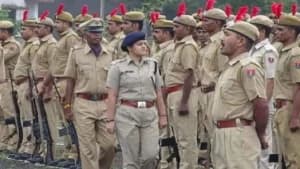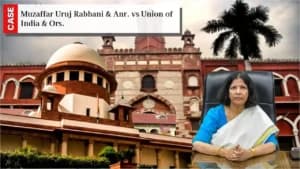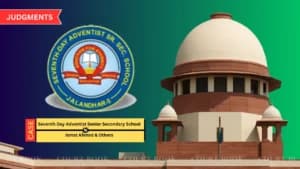On January 3, 2025, the Supreme Court of India reinforced a pivotal principle regarding the validity of wills, stating that the simple registration of a will does not automatically make it legally valid. It must be proven in accordance with the Indian Succession Act, 1925, particularly Section 63, and the Indian Evidence Act, 1872, specifically Section 68. These provisions outline the procedures required for a will to be recognised as authentic and legally binding in India.
The Court’s ruling focused on two key legal requirements: the execution of the will under the Succession Act and proof of the will’s execution under the Evidence Act. According to Section 63 of the Indian Succession Act, a will must be executed in the presence of at least two witnesses, and it must be signed by the testator (the person making the will) to show their intent. Meanwhile, Section 68 of the Evidence Act establishes that the execution of a will must be proven by examining at least one of the attesting witnesses. This ensures that the will is a true reflection of the testator’s intent, free from coercion or external influence.
The ruling came after a significant case involving Balasubramaniya Thanthiriyar, a testator whose property had been partitioned into four schedules. Three of these schedules were allocated to his first wife and children. After his death, his second wife and children presented an unregistered will to claim the entire estate. However, the validity of this will was disputed in court.
In this case, the trial court and the Madras High Court had earlier rejected the will, citing doubts about its authenticity. The Supreme Court examined the circumstances surrounding the will’s creation, focusing particularly on inconsistencies in the testator’s health. For example, one part of the will claimed that the testator was of sound mind and free from any external influence, while another part mentioned his ongoing heart disease and treatment by several doctors. This contradiction raised doubts about the will’s authenticity, leading the Court to question the validity of the will.
Furthermore, the Court emphasized that the person presenting the will must provide clear, satisfactory evidence of two key factors: first, that the will was signed by the testator, and second, that the testator had a sound mind and fully understood the will’s content and implications. In this case, the appellant failed to disclose crucial details, such as the fact that the stamp papers used for the will were purchased in her name, casting further doubt on the will’s authenticity.
Another key issue identified by the Court was the absence of any confirmation that the testator understood the will's contents. Though one witness testified that a notary public had read the will to the testator before he signed it, this was not documented in the will itself. Additionally, the fact that the will was executed in Madurai, far from the testator's home, further fueled suspicion. The witnesses who attested to the will were not familiar with the testator, which was another point of concern for the Court.
Suspicious circumstances, such as the testator’s health condition and the location of the will’s execution, were also crucial factors in the Court’s decision. Given that the testator was in poor health, it was questionable whether he could have dictated the will himself, or whether the involvement of a notary public in reading the will to him raised doubts about his full comprehension of the document.
The Court ultimately upheld the lower courts' findings that the will’s validity was not proven. It reiterated that, in such cases, the person relying on the will must demonstrate its authenticity beyond doubt. The Court noted that when there are concurrent findings from the trial court and high court regarding the suspicious nature of the will, it is difficult for the appellate court to interfere.
In this case, the Supreme Court dismissed the appeal, emphasizing that the testamentary documents should be scrutinized rigorously to avoid fraudulent claims. The ruling clarified that the mere registration of a will does not serve as conclusive evidence of its authenticity. Instead, proper execution, including witness testimony, and a clear demonstration that the testator understood the will’s contents, are essential for establishing its validity.
This judgment serves as a crucial reminder for individuals drafting their wills in India. While registration may be a useful step, it does not validate the will on its own. Individuals must ensure that the will is executed properly, witnessed appropriately, and that the testator’s mental and physical condition is taken into account to avoid future disputes. Legal professionals play a vital role in ensuring these requirements are met, thereby safeguarding the testator's intentions and protecting heirs from lengthy and contentious legal battles.
Case : Leela & Ors. V. Muruganantham & Ors., Civil Appeal No. 7578 of 2023.










